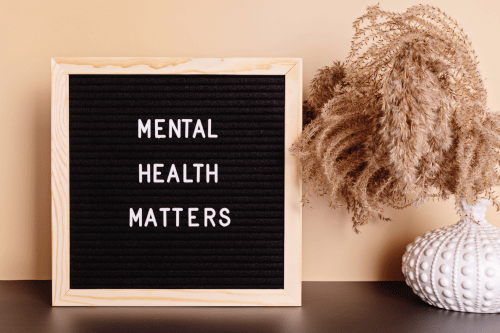Top 10 Fact About Mental Health Everyone Should Know
Understanding mental health is crucial because it affects everyone. This article will introduce you to ten vital facts about mental health, including a fact about mental health that covers how widespread mental health issues are, different types of disorders, their impact, and treatment options. Gaining these insights will help enhance your awareness and encourage informed discussions about mental health.
Key Takeaways
Mental health issues affect everyone regardless of age, gender, race, or socioeconomic status, with significant implications for various demographics.
Approximately 21% of U.S. adults experience mental health conditions, yet over half do not seek treatment, highlighting the pervasive stigma surrounding mental health.
Severe mental disorders like major depression, bipolar disorder, and schizophrenia necessitate comprehensive treatment and support to improve individuals’ quality of life.
Mental Health Affects Everyone
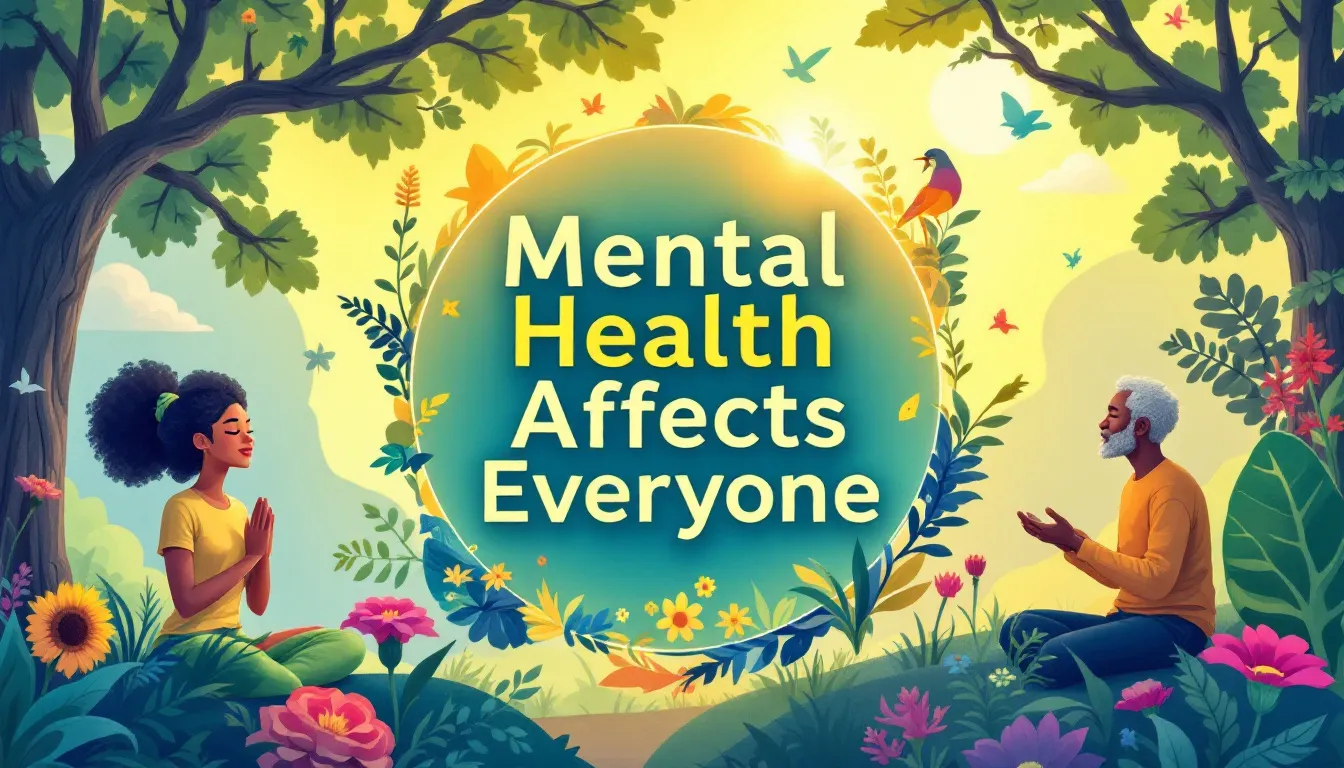
Mental health issues do not discriminate; they can impact anyone, irrespective of their age, gender, race, or socioeconomic status. This universality makes it a pressing concern for all demographics. Whether you’re a teenager grappling with the pressures of school, an adult balancing work and family, or a senior facing the challenges of aging, mental health conditions can touch every life.
Interestingly, while women are more frequently diagnosed with depression, it doesn’t mean men are immune. In fact, men often go undiagnosed due to societal expectations and reluctance to seek help. This discrepancy highlights the need for awareness and acceptance across genders.
The LGBTQI+ community is particularly vulnerable to mental health issues, with higher rates of depression compared to their heterosexual peers. This increased risk underscores the importance of providing supportive environments and accessible mental health resources for all individuals, regardless of their sexual orientation or gender identity.
Prevalence of Mental Illness
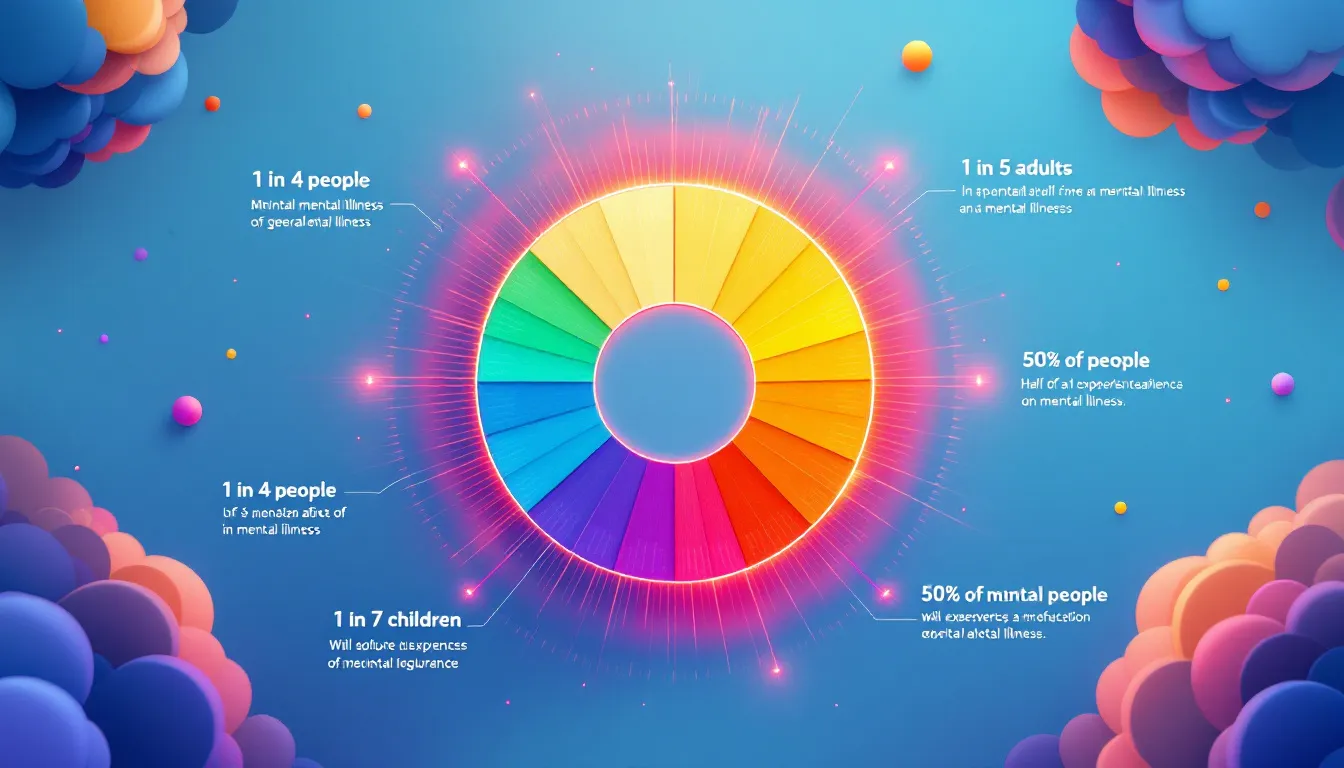
The prevalence of mental health issues is staggering. Approximately 21% of adults in the U.S. are dealing with at least one mental health condition, which translates to around 50 million people. This statistic alone highlights the widespread nature of mental health disorders.
Over half of the population will experience a mental health disorder at some point in their lives. Despite this high prevalence, there remains a significant stigma around mental health, which often prevents individuals from seeking the help they need. It’s alarming to note that 55% of adults with a mental health issue have not sought any form of treatment.
The COVID-19 pandemic has exacerbated mental health problems, with 40% of Americans reporting symptoms of anxiety and depression in 2020. This increase underscores the urgent need for accessible mental health care and support systems.
Major Depression: A Leading Cause of Disability
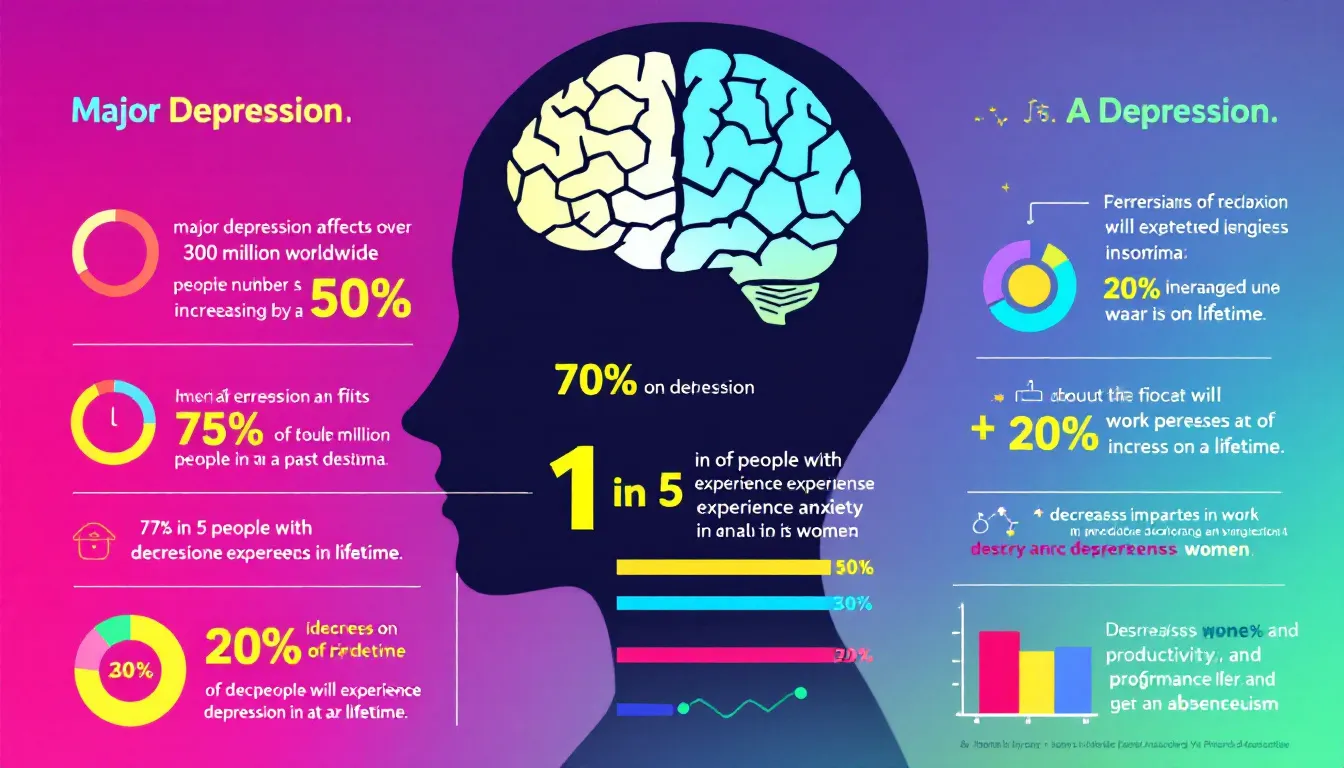
Depression is not just a fleeting feeling of sadness; it’s a serious mental health condition that can severely impact one’s life. According to the World Health Organization, depression is the leading cause of disability worldwide, measured in Years Lived with Disability (YLDs). This statistic illustrates the profound impact depression has on individuals’ daily functioning.
The burden of disability from depression is greater than that of all types of cancer and diabetes combined. In the age group of 15-44 years, depression is already the second leading cause of death in Disability Adjusted Life Years (DALY). These figures highlight the urgent need for effective mental health interventions and support.
Approximately 23% of individuals with major depressive disorder report health issues severe enough to prevent them from functioning normally. This high percentage underscores the debilitating nature of major depression and the importance of early diagnosis and treatment.
Anxiety Disorders: More Than Just Worry
Anxiety disorders go far beyond typical worries and fears. These conditions involve excessive and persistent anxiety that can significantly impair daily functioning. Generalized anxiety disorder (GAD), for instance, is characterized by chronic worry about everyday issues, leading to physical symptoms such as restlessness and fatigue.
Panic disorder is another severe form of anxiety, involving recurrent panic attacks that combine physical and psychological symptoms, often resulting in fears of losing control or dying. Specific phobias, on the other hand, involve intense fear of particular objects or situations, leading to significant distress and avoidance behaviors.
Social anxiety disorder, agoraphobia, and separation anxiety disorder are other types of anxiety disorders that significantly impact individuals’ lives. These disorders can cause:
Profound fear in social settings (Social anxiety disorder)
Fear of being in situations where escape might be difficult (Agoraphobia)
Excessive fear regarding separation from attachment figures (Separation anxiety disorder)
Severe Mental Disorders: Bipolar Disorder and Schizophrenia
Severe mental disorders like bipolar disorder and schizophrenia can lead to significant impairments in daily functioning, affecting personal, social, and occupational areas of life. Serious mental illness, such as bipolar disorder, characterized by extreme mood swings from manic highs to depressive lows, requires careful management and individualized treatment plans, especially in children.
Schizophrenia, a chronic and severe mental illness, impacts how a person thinks, feels, and behaves. It often requires lifelong treatment and support to manage symptoms and improve quality of life. Both bipolar disorder and schizophrenia significantly impact individuals’ lives, necessitating a comprehensive approach to treatment and support.
Understanding and adequately addressing these severe mental disorders is crucial for improving the quality of life for those affected. Comprehensive treatment plans that include medication, therapy, and support systems are essential in managing these conditions effectively.
Children and Mental Health
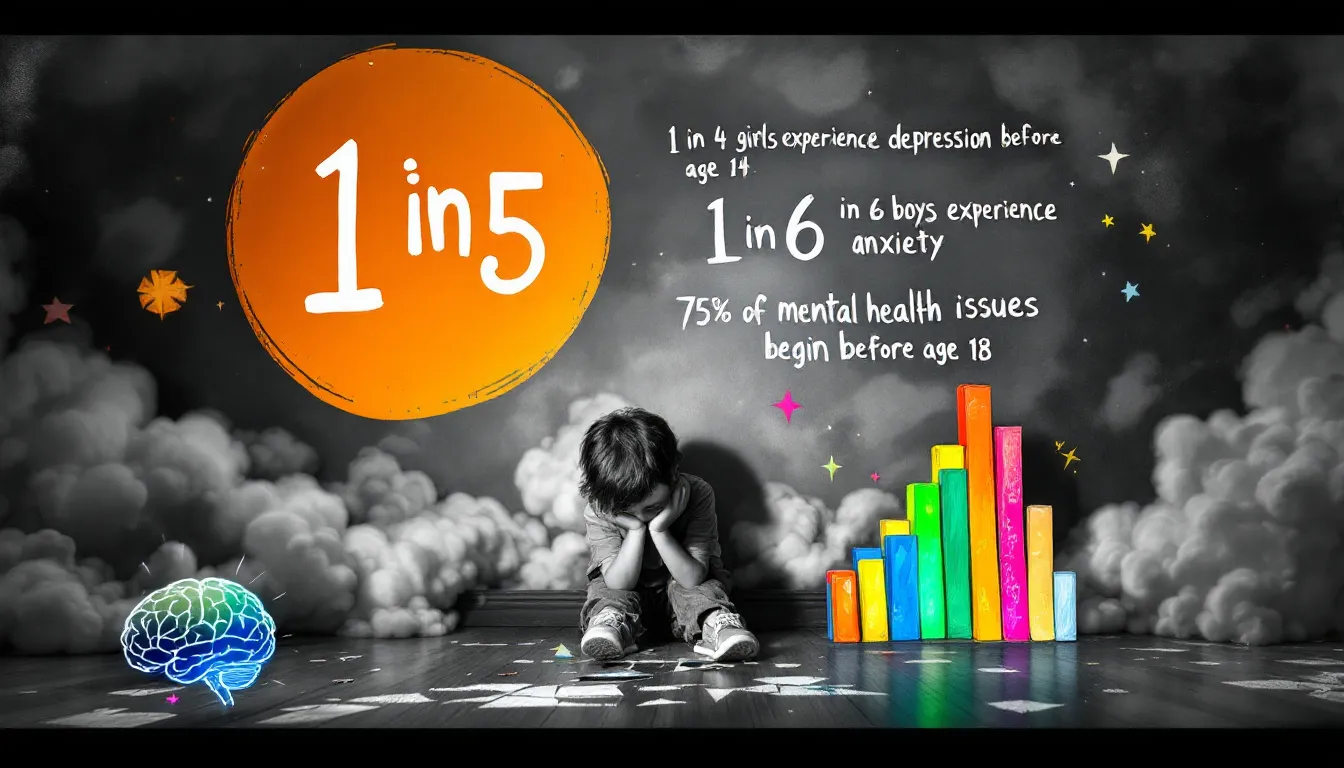
Mental health issues can manifest early in life, making early identification and intervention crucial for children. Identifying mental health issues early can significantly enhance treatment outcomes for young people. Comprehensive mental health assessments are key in evaluating a child’s emotional, cognitive, and behavioral functioning.
Children receiving early mental health intervention often experience less severe symptoms over time. Education about the signs of mental health issues can help in early intervention for at-risk individuals, ensuring that children receive the support they need as soon as possible.
Biological Factors and Mental Health
Mental health disorders are influenced by a complex interplay of genetic, biological, environmental, and psychological factors. Genetic predisposition plays a significant role, with certain genes linked to disorders like depression and schizophrenia. This genetic influence highlights the importance of understanding family history in mental health.
Neurotransmitter imbalances, particularly in serotonin and dopamine, are often implicated in various mental health disorders. Hormonal changes, such as those occurring during puberty or pregnancy, can also impact mental health and trigger disorders in susceptible individuals.
Brain structure abnormalities, like differences in the hippocampus or amygdala, can be observed in individuals with certain mental health disorders. These biological insights are crucial for developing targeted treatments and interventions.
The Stigma Around Mental Illness
Stigma remains one of the most significant barriers to seeking help for mental health issues. Only 16.5% of people with depression seek treatment due to the stigma associated with these conditions. Many people mistakenly believe that a weak personality is responsible for depression, contributing to this stigma.
Media representations often exaggerate and misrepresent mental health issues, reinforcing negative stereotypes and hindering efforts to combat stigma. Self-stigma, where individuals internalize societal stereotypes, leads to feelings of shame and isolation. Stigma can also extend to the families of those with mental health issues, resulting in social withdrawal and blame directed at them.
Professional stigma can impact mental health care providers, affecting their attitudes and the quality of care they deliver. Addressing stigma at all levels is essential for improving mental health outcomes and encouraging individuals to seek the help they need.
Suicide: A Serious Concern

Mental health disorders significantly increase the risk factors for suicidal thoughts and behaviors. Over 12 million adults have reported experiencing serious suicidal thoughts, with higher figures among individuals identifying as multiracial. This alarming statistic highlights the critical need for support systems and interventions to prevent suicide.
SAMHSA’s National Helpline offers a confidential service available 24/7 to assist individuals dealing with mental or substance use disorders. The helpline provides referrals to local treatment centers, support groups, and community organizations.
Case management helps coordinate various services for individuals, facilitating their recovery through structured support.
Treatment and Support Options
Mental health treatment options are diverse and can be tailored to individual needs. Psychotherapy, conducted by trained professionals, is a key treatment method that helps individuals explore their thoughts and feelings to improve their mental well-being. Medications are often used to manage symptoms and are most effective when combined with psychotherapy.
Support groups provide a platform for individuals to connect and share their recovery experiences, often led by peers rather than professionals. Peer support involves assistance from those who have similar experiences, providing relatable guidance in recovery.
Self-help plans empower individuals to manage their mental health by setting personalized wellness strategies.
Summary
The journey through understanding mental health reveals its complexity and the profound impact it has on individuals and society. From the universality of mental health issues to the specific challenges posed by disorders like major depression and anxiety, awareness and education are crucial.
By addressing stigma, providing support, and ensuring access to treatment, we can make strides towards a society that values and prioritizes mental well-being. Remember, mental health is just as important as physical health, and seeking help is a sign of strength, not weakness.

